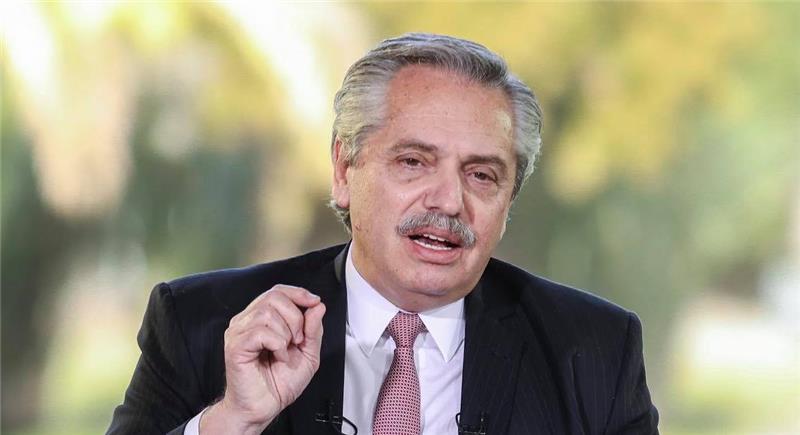
Will Colombia’s New President Deliver on His Promises?
Iván Duque, a conservative former senator, on Sunday won Colombia’s presidential runoff election. What does it mean for the country?
A Daily Publication of The Dialogue
Argentina’s government announced Aug. 4 that it had reached a deal with three main groups of bondholders in its planned restructuring of $65 billion in foreign bonds. The deal, which suggests a recovery rate of about 55 cents on the U.S. dollar, would “grant Argentina significant debt relief,” the Economy Ministry said. How good is this deal for Argentina’s government and for creditors? What will the deal mean in the long-term for Argentina’s economy and its ability to borrow money in capital markets in the future? What does Argentina’s government need to do in order to avoid accumulating more unsustainable levels of debt?
Lisa M. Schineller, managing director and lead analyst for sovereign and international public finance ratings at S&P Global Ratings: “Argentina’s restructuring deal reached in principle on Aug. 4 is a key step forward for both the government and investors. It enables the government to pivot its focus fully on bolstering Argentina’s low-growth trajectory and tackling high levels of inflation. It allows creditors to hold bonds that will be current on paying debt service. Both sides made important concessions, recognizing that a deal was important for all. There was not a significant haircut on the face value of debt, but the government enjoys important cash-flow relief on debt service over the coming years. For bondholders, compromise by the government on some legal aspects and advanced timing of some debt service payments was key for their metrics. Next up are negotiations with the IMF to reconfigure its repayment schedule, and as part of that conversation the opportunity for the government to consolidate and articulate more fully its macroeconomic and microeconomic strategy. To capitalize on fiscal space provided by debt relief, ensure longer-term sustainability of Argentina’s debt and regain access to market financing, bolstering trend growth after a technical rebound post-Covid, is crucial. This is beyond any plans for a measured reduction in fiscal imbalances. Investors—both real and portfolio—will be looking for clarity and consistency in the government’s policy efforts to enhance productivity and attract private investment. What will happen to the complex and high tax burden, the array of foreign exchange restrictions and pending trade agreements? And what will happen to the system of negotiated prices for consumer goods, gas and utilities? Higher growth and low inflation are good for investors and, importantly, Argentine living standards—as well as sovereign creditworthiness.”
Kezia McKeague, director at McLarty Associates: “The agreement will benefit both sides, while setting a positive precedent for the international financial system writ large. It is particularly good news for the Argentine government, which has claimed a major victory by bringing the country out of its ninth sovereign default. Resolution of Argentina’s debt problem was one of the primary raisons d’être of the Fernández administration and the almost exclusive focus of Minister of Economy Martín Guzmán since taking office in December 2019. Nevertheless, as many observers have noted, the deal with bondholders is merely a point of departure—a necessary but insufficient step for regaining access to credit markets and ensuring the sustainable economic growth that, in the long term, is the only way for any economy to meet its financial commitments. Rating agencies have indicated that the formalization of the restructuring with private creditors will likely lead to modest credit upgrades, but Argentina’s rating will remain low due to continued high inflation, a growing fiscal deficit and the severe recession exacerbated by the Covid-19 pandemic. The next step for the Ministry of Economy will be negotiation of a new program with the International Monetary Fund. While the government has achieved a positive relationship with Managing Director Kristalina Georgieva, the IMF talks will require greater definition of an economic strategy than we have seen to date from the Fernández administration. Moreover, there is significant pent-up demand from companies in the real economy to address other urgent challenges. The hope is that with this new breathing space, the administration will seek to restore investor confidence by gradually unwinding unsustainable price controls and import and foreign-exchange restrictions. At least in the short term, however, the government will likely continue to actively manage trade and financial flows. In the absence of consensus on macroeconomic management, much uncertainty remains.”
Bruno Binetti, nonresident fellow at the Inter-American Dialogue: “The deal is good news for everyone: Argentina gets a more sustainable debt profile, the government gets a significant political win and low debt payments in the next few years, and creditors avoid a prolonged judicial fight in New York. That said, the restructuring was a necessary but by no means sufficient condition to envision a way out of Argentina’s catastrophic economic situation. Private analysts expect a collapse of GDP of between 10 percent and 15 percent this year, inflation is high and expected to rise due to massive monetary emission, and poverty will probably reach 50 percent of the population. Further, the fiscal deficit is approaching 10 percent of GDP, which is unsustainable even if the country returns to capital markets. The next step is renegotiating Argentina’s $50 billion debt with the International Monetary Fund. Economy Minister Martín Guzmán said a deal with the IMF won’t be ready until early 2021. Unlike private creditors, the IMF will demand significant macroeconomic reforms in exchange for spreading out payments (the IMF can’t write off debt). Spending cuts are unavoidable, but will be painful, especially given the impact of the pandemic. Ultimately, restructuring the debt with private creditors and the IMF will provide only temporary relief if Argentina doesn’t tackle its decades-long structural problems. These include low productivity, chronic shortage of hard currency, unsustainable fiscal deficits and lack of trust in the peso, among many others."
 The Latin America Advisor features Q&A from leaders in politics, economics, and finance every business day. It is available to members of the Dialogue’s Corporate Program and others by subscription.
The Latin America Advisor features Q&A from leaders in politics, economics, and finance every business day. It is available to members of the Dialogue’s Corporate Program and others by subscription.
Iván Duque, a conservative former senator, on Sunday won Colombia’s presidential runoff election. What does it mean for the country?
Mexicans go to the polls on Sunday, July 1, for the country’s presidential, legislative and local elections. What can we expect?
Leftist Andrés Manuel López Obrador swept to victory Sunday in Mexico. What changes are in store?
 The government of Argentine President Alberto Fernández reached a major debt renegotiation deal with bondholders earlier this month. // File Photo: Argentine Government.
The government of Argentine President Alberto Fernández reached a major debt renegotiation deal with bondholders earlier this month. // File Photo: Argentine Government.

